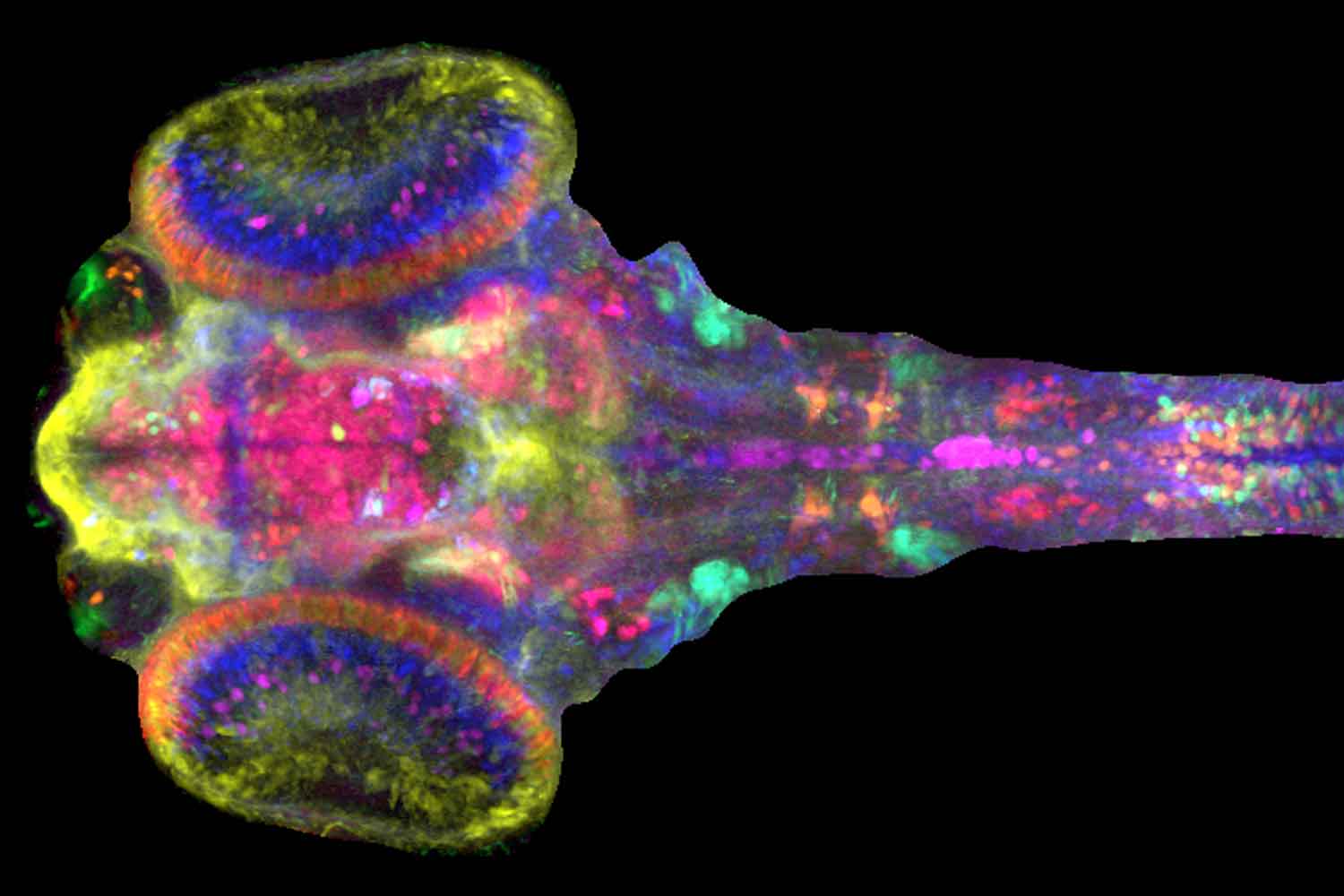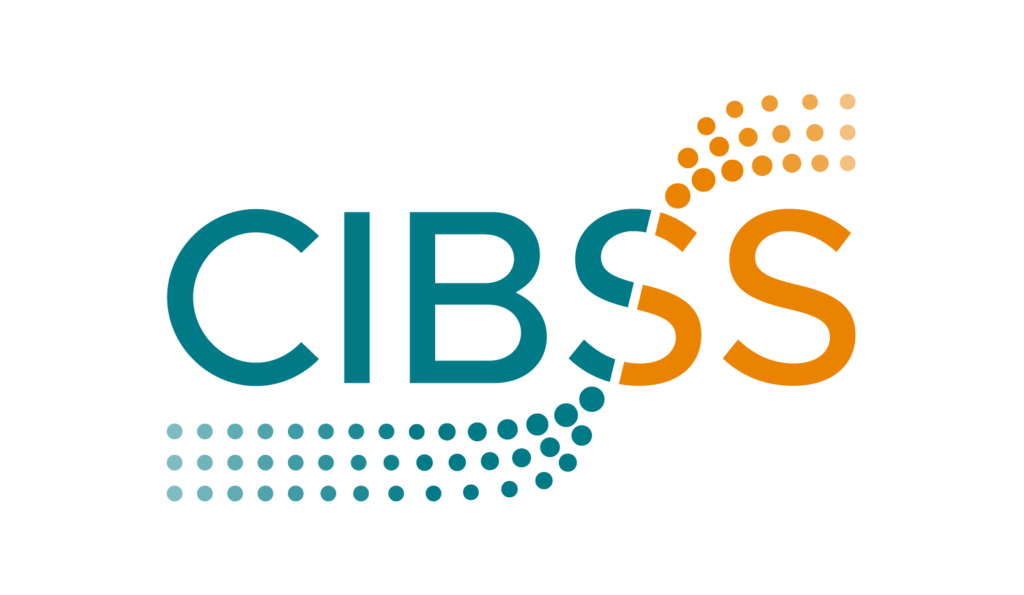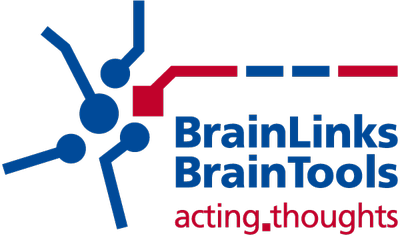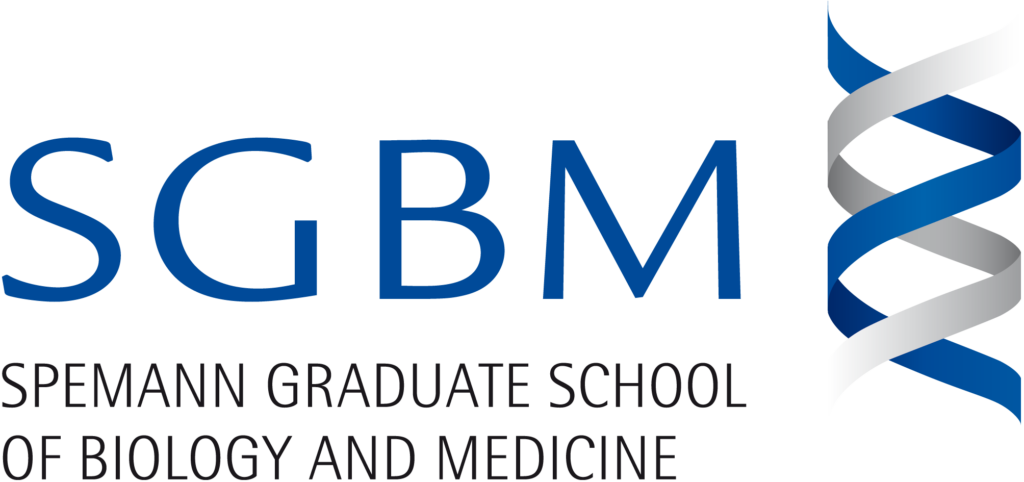Exzellenzeinrichtungen
Wissenschaftliche Zentren
-
Exzellenzcluster: Future Forests
-
Exzellenzcluster: CIBSS Centre for Integrative Biological Signalling Studies
-
Exzellenzcluster: Zentrum für biologische Signalstudien (bioss)
-
Exzellenzcluster: Living, Adaptive and Energy-autonomous Materials Systems (livMatS)
-
Exzellenzcluster: Brainlinks – Braintools
-
Centre for Medicine and Society (ZMG)
-
Bernstein Center Freiburg (BCF)
-
Centrum für Chronische Immundefizienz (CCI)
-
Hilde-Mangold-Haus (HMH)
-
Freiburger Materialforschungszentrum (FMF)
-
Freiburger Zentrum für interaktive Werkstoffe und bioinspirierte Technologien (FIT)
Sonderforschungsbereiche (SFB) , DFG-Schwerpunktprogramme (SPP) und Forschungsgruppen (FOR)
-
SPP 2433: Messtechnik auf fliegenden Plattformen
seit 2024
-
SFB/TRR 384: Hemmende Neurone: ihre Rolle in der Gestaltung des kortikalen Codes
seit 2024
-
Forschungsgruppe FOR 5596: Erschließung des Potenzials S-Adenosylmethionin-abhängiger Enzymchemie
seit 2023
-
SPP 2349: Die Genomischen Grundlagen Evolutionärer Innovationen (GEvol)
seit 2022
-
SPP 2389: Emergente Funktionen der bakteriellen Multizellularität
seit 2022
-
SFB 1479: Onkogen-getriebener Immun Escape (OncoEscape)
seit 2021
-
Forschungsgruppe FOR 5159: Aufschlüsselung präfrontaler Netzwerke der kognitiven Flexibilität
seit 2021
-
SFB 1403: Zelltod in Immunität, Entzündungen und Erkrankungen
seit 2020
-
SPP 2237: MAdLand – Molekulare Adaptation an das Land: Evolutionäre Anpassung der Pflanzen an Veränderung
seit 2020
-
SPP 2205: Evolutionäre Optimierung neuronaler Systeme
seit 2020
-
SFB 1425: Heterozelluläre Natur von Herzläsionen: Identitäten, Interaktionen, Implikationen
2020 bis 2025
-
SFB 1381: Dynamische Organisation zellulärer Proteinmaschinerien: Von der Biogenese und modularen Assemblierung zur Funktion
seit 2019
-
Forschungsgruppe FOR 2816: The Autotrophy-Heterotrophy Switch in Cyanobacteria
seit 2018
-
Forschungsgruppe FOR 2799: Receiving and Translating Signals via the γδ T Cell Receptor
seit 2018
-
Forschungsgruppe FOR 2743: Zelluläre Schutzmechanismen gegen mechanischen Stress
seit 2018
-
SPP 1991: Taxon-OMICS: Neue Herangehensweisen zur Entdeckung und Benennung von Arten und Biodiversität
seit 2017
-
SFB 1160: Immunpathologie aufgrund eingeschränkter Immunreaktionen (IMPATH)
seit 2015
-
Forschungsgruppe FOR 2281: Sociality and the reversal of the fecundity-longevity trade-off
2015 bis 2024
-
Forschungsgruppe FOR 1905: PerTrans – Structure and Function of the Peroxisomal Translocon
2013 bis 2024
-
SFB/TRR 130: B-Zellen: Immunität und Autoimmunität
2013 bis 2022
-
SFB 850: Kontrolle der Zellmotilität bei Morphogenese, Tumorinvasion und Metastasierung
2010 bis 2021
-
SFB 1140: Nierenerkrankung – Vom Gen zum Mechanismus (KIDGEM)
2015 bis 2019
-
SFB/TRR 141: Entwurfs- und Konstruktionsprinzipien in Biologie und Architektur. Analyse, Simulation und Umsetzung
2014 bis 2019
-
SFB 746: Funktionelle Spezifität durch Kopplung und Modifikation von Proteinen
2007 bis 2018
-
SFB 620: Immundefizienz: Klinik und Tiermodelle
2002 bis 2013
-
SFB 592: Signalmechanismen in Embryogenese und Organogenese
2001 bis 2012
-
SFB 780: Synaptische Mechanismen neuronaler Netzwerkfunktion
2008 bis 2012
-
SFB 505: Neuronale Differenzierung und Neurotransmission
1995 bis 2007
-
SFB 388: Zelluläre Funktionen Dynamischer Proteinwechselwirkungen
1995 bis 2006
Promotionsprogramme, Graduiertenschulen und -kollegs
-
Spemann Graduiertenschule für Biologie und Medizin (SGBM)
-
International Max Planck Research School for Epigenetics, Biophysics and Metabolism (IMPRS-EBM)
seit 2025
-
Eucor Upper Rhine Immunology doctoral programme (EURIdoc)
2021 bis 2027
-
GRK 2606: Entschlüsselung zellulärer Proteasefunktionen durch Identifizierung und Analyse von Proteasesubstraten (ProtPath)
seit 2021
-
GRK 2344: MeInBio-BioInMe: Untersuchung räumlicher und zeitlicher Dynamik der Genregulation mit hochauflösenden Hochdurchsatzverfahren
seit 2017
-
GRK 2202: Transport über und in Membranen
2016 bis 2025
-
GRK 2123: Erhaltung der Waldbiodiversität in vielfältig genutzten Landschaften Mitteleuropas (ConFoBi)
2016 bis 2025
-
Weitere Promotionsprogramme und Graduiertenkollegs
-
GRK 1976: Funktionelle Diversität von Cofaktoren in Enzymen
2014 bis 2023
-
Marie Curie Programm: EN_ACTI2NG – European Network on Anti-Cancer Immuno-Therapy Improvement by modification of CAR and TCR Interactions and Nanoscale Geometry
2017 bis 2021
-
Marie Curie Programm: MossTech – Advanced use of mosses for biotechnological solutions
2017 bis 2021
-
BrainDisC – International PhD Program in Computational Neuroscience of Brain Disease
2017 bis 2019
-
Marie Curie Programm: PlaMatSu – Plant-inspired materials and surfaces
2016 bis 2020
EU-Projekte
European Research Grants (ERC)
ERC Synergy Grants
ERC Advanced Grants
ERC Consolidator Grants
-
InCanTeSiMo
2021 bis 2026 | Prof. Dr. Barbara Di Ventura, Fakultät für Biologie
-
PDPcardio – Protein phosphatase 1-disrupting peptides: Scope and mechanism of action in the treatment of heart insufficiency
2020 bis 2026 | Prof. Dr. Maja Banks-Köhn, Fakultät für Biologie
ERC Starting Grants
-
PP1tools – Development of chemical biology tools for the elucidation of protein phosphatase-1 substrates and druggability
2014 bis 2018 | Prof. Dr. Maja Banks-Köhn, Fakultät für Biologie
-
OptoMotorPath – Optogenetic dissection of motor cortex dynamics and pathways
2013 bis 2018 | Prof. Dr. Ilka Diester, Fakultät für Biologie
-
ARCHAELLUM – Assembly and function of the crenarchaeal flagellum
2013 bis 2018 | Prof. Dr. Sonja-Verena Albers, Fakultät für Biologie
-
FLYVISUALCIRCUITS – Linking neural circuits to visual guidance in flying flies
2012 bis 2017 | Prof. Dr. Andrew Straw, Fakultät für Biologie
-
lec&lip2invade – The interactions of the Pseudomonas aeruginosa lectins LecA and LecB with glycosphingolipids result in membrane invagination, signaling and cellular uptake of the bacterium
2011 bis 2016 | Prof. Dr. Winfried Römer, Fakultät für Biologie
-
CompBioMat – Computing Biomaterials
2010 bis 2015 | Prof. Dr. Wilfried Weber, Fakultät für Biologie
ERC Proof of Concept Grants
7. Forschungsrahmenprogramm
-
EUR-PEC-European Plant Embryology Consortium – ERA-CAPS Collaborative project CP
2012 bis 2014
-
ENERGYPOPLAR – Enhancing Poplar Traits for Energy Applications – Collaborative project CP
2008 bis 2012
-
MEMOSAD – Memory loss in Alzheimer disease: underlying mechanisms and therapeutic targets – Collaborative project CP
2008 bis 2011
-
SIREN – SIgnals and REgulatory Networks in early plant embryogenesis – Marie Curie (ITN)
2008 bis 2012
-
mdDANEURODEV – Molecular coding and subset specification of dopamine neurons generating the meso-limbic and nigro-striatal system – Collaborative project CP
2009 bis 2012
-
DOPAMINET – Molecular Networks of Dopaminergic Neurons in Chordates – Collaborative project CP
2009 bis 2012
-
METAPRO – The development of tools and effective strategies for the optimisation of useful secondary METAbolite PROduction in planta – Collaborative project CP
2009 bis 2013
-
FACETS-ITN – Fast Analog Computing with Emergent Transient States – Initial Training Network – Marie Curie (ITN)
2009 bis 2013
-
BACCARA – Biodiversity And Climate Change, A Risk Analysis – Current Research Project
2009 bis 2012
-
morphogenesis – Coordinating cell differentiation and morphogenesis in a migrating tissue – Marie Curie (ERG)
2011 bis 2014 | Koordination: Prof. Dr. Virginie Lecaudey, Institut für Biologie I
-
ZF-HEALTH – Zebrafish Regulomics for Human Health – Collaborative project CP
2010 bis 2015
-
PHYB – Identification and functional analyzis of the subnuclear protein complex of phytochrome B photoreceptor in Arabidopsis thaliana – Marie Curie (IEF)
2010 bis 2012 | Koordination: Prof. Dr. Eberhard Schäfer, Institut für Biologie II
-
FunDivEUROPE – Functional significance of forest biodiversity in Europe – Collaborative project CP
2010 bis 2015 | Koordination: Prof. Dr. Michael Scherer-Lorenzen, Institut für Biologie II
-
DirectFuel – Direct biological conversion of solar energy to volatile hydrocarbon fuels by engineered cyanobacteria – Collaborative project CP
2010 bis 2014
-
SHeMat – Training Network for Self-Healing Materials: from Concepts to Market – Marie Curie (ITN)
2012 bis 2015
-
Stem Cell Regulation – Gene regulatory Network controlling the Root Stem Cell Niche in Arabidopsis Thaliana – Marie Curie (IEF)
2012 bis 2014 | Koordination: Prof. Dr. Thomas Laux, Institut für Biologie III
-
MossClone – Creating and testing a method for controlling the air quality based on a new biotechnological tool. Use of a devitalized moss clone as passive contaminant sensor – Collaborative project CP
2012 bis 2015
-
PHOTO.COMM – Design & Engineering of Photosynthetic Communities for Industrial Cultivation – Marie Curie Actions (ITN)
2012 bis 2016
-
MaCuMBA – Marine Microorganisms: Cultivation Methods for Improving their Biotechnological Applications – Collaborative project CP
2012 bis 2016
-
SYBILLA – Systems Biology of T-cell Activation in Health and Disease – Collaborative project CP
2008 bis 2013 | Koordination: Prof. Dr. Wolfgang Schamel, Institut für Biologie III
-
DIVERFOR – Functional implications of inter- vs. intraspecific trait diversity in European forests – Marie Curie Actions (IEF)
2013 bis 2016 | Koordination: Prof. Dr. Michael Scherer-Lorenzen, Institut für Biologie II
-
MAGICPAH – Molecular Approaches and MetaGenomic Investigations for optimizing Clean-up of PAH contaminated sites – Collaborative project CP
2010 bis 2014
Horizont 2020, Strukturförder-, Bildungsprogramme
-
MossTech – Advanced use of mosses for biotechnological solutions, Marie Sklodowska Curie (ITN)
2017 bis 2021
-
MARA – Molecular Analytical Robotics Assays – Collaborative Projects (CP)
2015 bis 2020
-
EN_ACTI2NG – European Network on Anti-Cancer Immuno-Therapy Improvement by modification of CAR and TCR Interactions and Nanoscale Geometry, Marie Sklodowska Curie (ITN)
2017 bis 2021
-
VITIFUTUR – Transnationale Plattform für Angewandte Forschung und Weiterbildung im Weinbau – INTERREG V Oberrhein
2017 bis 2019
-
Treasure Water – Trans-Regional Environmental Awareness for Sustainable Usage of Water Resources – ERASMUS+ – Capacity Building in Higher Education
2015 bis 2019 | Koordination: Prof. Dr. Ralf Reski, Fakultät für Biologie







